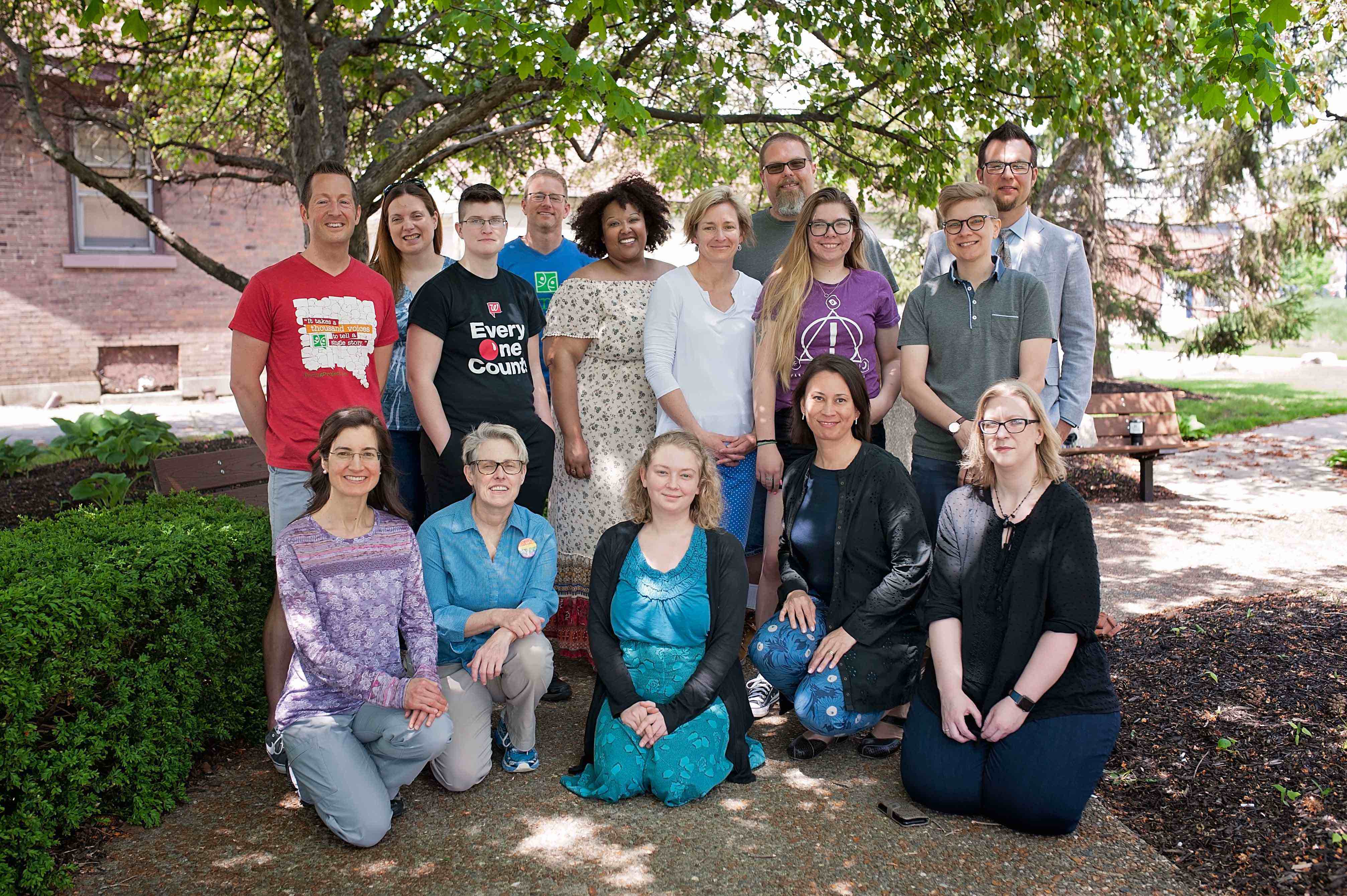PRIDE & Prejudice

(Facing Pride volunteers, photo by Kira Childers)
“I don’t think they should be executed, just imprisoned.”
And by “they,” the twenty-something grad student in Uganda meant anyone who was gay.
Throughout my travels I’ve seen that the most consistently persecuted group is anyone in the LGBTQ community. “Homosexuality” is illegal in 74 countries and punishable by death in 14.
Each country seems to have a group, at least one, of people looked down upon. There is usually some regional variance. Costa Ricans aren’t fans of Nicaraguans taking their jobs. The government of Myanmar denies the existence of the Rohingya. Most countries don’t like migrants. Sometimes the hate is fueled by economics, religion, and nationality. In some places it’s okay to be a Christian or Muslim or of a certain ethnicity or religion and in other places it’s not. But nearly half the countries in the world hate gay people.
Forty countries have “gay panic” clauses where a defendant can attack or kill someone, plead that they thought the person was gay, and get off for it.
In Zanzibar I met a woman exploring the work of AIDS initiatives in East Africa. She found that organizers were under constant threat of being accused of being gay and then facing jail time. No matter the truth, you could get locked away for someone thinking you might be gay.
It’s not illegal to be gay in the United States, although some people would like that. But it is legal to deny service to someone based on their gender identity and sexuality. In Indiana the GOP just added the definition of marriage–between one man and one woman–back into their party platform despite the Supreme Court’s ruling that marriage equality is the law of the land.
Last week a CrossFit gym in Indiana canceled a PRIDE day event because of the owner’s religious views. The coaches quit, the members left, and the last I heard the gym was closing. You may have the right to discriminate, but others have the right to avoid your business.
And it’s not just institutions discriminating; it’s families too. LGBTQ youth are two times more likely to be assaulted. They make up a significant percentage of the homeless population. A third of LGBTQ youth have attempted suicide in the past year.
June is PRIDE month. Some folks have a problem with that. “Why do they have to flaunt it?” they ask. Because pride is the opposite of shame. In a world and society actively working to make members of the LGBTQ community feel lesser than, PRIDE is an opportunity for members of the community to celebrate and show themselves and the world that they are worthy of love and respect.
This month The Facing Project is launching it’s Facing Pride event and book on June 30th at Cornerstone. (Get your free tickets!) I felt like I had a pretty good idea of what members of the LGBTQ community face on a daily basis. I was wrong. The stories showed me I have a lot of listening and learning left to do.
I listened to and collaborated with my Facing Project cofounder, J.R. Jamison on his story. I had read his memoir (by the way he just signed with an agent), have known him for years, and thought I knew a lot of his story, thoughts and feelings. But we had never talked about the day we met.
It was at a conference and I invited him to be a writer for Facing Poverty, the first Facing Project, and later friended him on Facebook. He was nervous to accept my invitation because he wasn’t sure how accepting I would be of who he was–a gay man. He told me that he picked up a “bro vibe” from me.
I don’t remember how it came up that he was married to a man, but now I know in that moment he was nervous. He was worried that I, like so many people in so many places, would devalue him because of who he loved. I wish this weren’t the case, but it’s this way for so many members of the LGBTQ community.
Think about any time you’ve been brave. Maybe you repelled down a mountain, gave a pubic talk, touched a snake, went on a shark dive. Remember how proud you were. For many members of the LGBTQ community walking out into the world is an everyday act of bravery.
We should all be proud of these brave individuals. And we should all celebrate with them, so they know that although half the world may be against them, we aren’t.

Let your voice be heard!